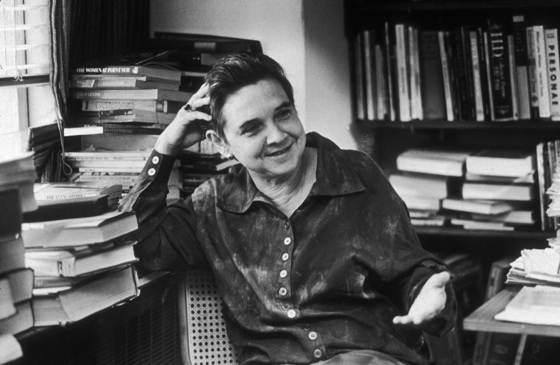
Adrienne Rich was a poet, non-fiction writer, essayist, and feminist, credited with bringing “the oppression of women and lesbians to the forefront of poetic discourse.”
Rich was encouraged especially by her father to read and write poetry. Her first collection of poetry, A Change of World, published during her last year as an undergraduate at Radcliffe College, won the Yale Series of Younger Poets Award. Upon graduation, she received a Guggenheim Fellowship to study at Oxford for a year. After her marriage, publication of her second book of poetry, and the birth of three sons, Rich’s life and work began to change She received the National Institute of Arts and Letters award (1960), her second Guggenheim Fellowship to work at the Netherlands Economic Institute (1961), and the Bollingen Foundation grant for the translation of Dutch poetry (1962), and published her third collection of poetry which marked a shift in her style and subject matter.
Moving her family to New York in 1966, Rich became involved with the anti-war, civil war, and feminist movements. Her three poetry collections published during this time reflect her increasingly radical political content.
About Rich’s work, the poet W.S. Merwin has said, “All her life she has been in love with the hope of telling utter truth, and her command of language from the first has been startlingly powerful.” In answer to the question “Does poetry play a role in social change?,” Adrienne Rich once answered:
Yes, where poetry is liberative language, connecting the fragments within us, connecting us to others like and unlike ourselves, replenishing our desire. . . . In poetry words can say more than they mean and mean more than they say. In a time of frontal assaults both on language and on human solidarity, poetry can remind us of all we are in danger of losing—disturb us, embolden us out of resignation. (http://www.newyorker.com/books/page-turner/adrienne-richs-poetic-transformations)